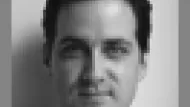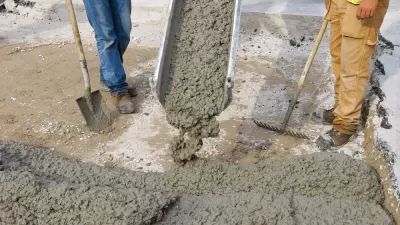Often times I’m struck by the advances we’ve made in mapping, modeling and depicting our cities. What was once the purview of mapmakers, surveyors or architects is now a democratized, engaging process that brings unexpected results. And the more advanced the technology, the more transparent our cities seem to become.
Often times I'm struck by the advances we've made in mapping, modeling and depicting our cities. What was once the purview of mapmakers, surveyors or architects is now a democratized, engaging process that brings unexpected results. And the more advanced the technology, the more transparent our cities seem to become.
I remember when 3D modeling of urban areas really took off. Digital pictures were grafted onto wireframe models and a life-like, on-line 3D model became reality. When seeing a model completed for Philadelphia about that time I experienced the same feeling I get when I'm afforded that rare opportunity to access the top of a skyscraper. The possibilities seemed endless. A ‘body-double' of our urban spaces could serve to improve our ability to design the city or even market and promote its assets to a global audience.
Today, of course, 3D modeling represents only one way of seeing our cities. Although Sketch-up and Google Earth are bringing this type of modeling to the masses, cities are also expanding into the virtual world in different ways. Boston, for instance, is buying space in Second Life to help further solidify its role and presence in both the real and virtual worlds. But perhaps the latest advance that warrants mentioning is a spin on photo-realism. Now, realistic, on-line tours can be generated for streets, parks, neighborhoods and even businesses. Google's steet view feature and the company everyscape, for instance, both create a simulated urban experience generated from photographs. These are useful and, truth be told, have allowed me to double check or confirm data on the fly as I work through projects. But the other part of my brain wonders if we're sacrificing some degree of discovery and mystery about our cities.
It's certainly not uncommon to preview cities be it through maps, movies or travel guidebooks. I remember what the movie The Sixth Sense did for Philadelphia in terms of tourism for instance. But I also remember how much better that movie would have been if I didn't know the lead character ‘sees dead people' before I entered the theater. Because the movie previews contained too much information I was left without the option to discover something about the plot.
I certainly don't begrudge applications like everyscape their commercial focus or desire to mimic reality. Push the technology and see where it goes. But I think the long-term value of our virtual worlds lie more in experiments like Real-Time Rome, Murmur, or Urban Atmospheres. Each of these applications uses information from a vast number of individuals that, collectively, tell a compelling story about a place. They're not so much about mimicking reality but creatively editing it.
We all want more transparency in our cities – more access to information, more information to access and more say in how and what decisions are made. Our on-line worlds are evolving into a great resource. Applications like everyscape and Google Earth are compelling on one level but also akin to a kind of on-line Robert Moses model on another. They provide what appears to be an objective reality to take in.
But as complex as our cities have become coupled with an ever-growing amount of information available on-line, I think we also need subjective guides that interpret and edit what we are seeing. The more applications that are developed that have a specific point of view, the more, I believe, our virtual worlds will truly enrich our experience with the physical one.
I often think of the 1948 movie The Naked City as a great example of re-presenting and editing a city. As one of the first films to use the city as a main character, the Naked City elaborately captured and framed the day to day experience and reality of New York City. This presence in a movie for city dwellers, according to Luc Sante, "confirmed their reality in a new and unexpected way."

Planetizen Federal Action Tracker
A weekly monitor of how Trump’s orders and actions are impacting planners and planning in America.

Congressman Proposes Bill to Rename DC Metro “Trump Train”
The Make Autorail Great Again Act would withhold federal funding to the system until the Washington Metropolitan Area Transit Authority (WMATA), rebrands as the Washington Metropolitan Authority for Greater Access (WMAGA).

The Simple Legislative Tool Transforming Vacant Downtowns
In California, Michigan and Georgia, an easy win is bringing dollars — and delight — back to city centers.

The States Losing Rural Delivery Rooms at an Alarming Pace
In some states, as few as 9% of rural hospitals still deliver babies. As a result, rising pre-term births, no adequate pre-term care and "harrowing" close calls are a growing reality.

The Small South Asian Republic Going all in on EVs
Thanks to one simple policy change less than five years ago, 65% of new cars in this Himalayan country are now electric.

DC Backpedals on Bike Lane Protection, Swaps Barriers for Paint
Citing aesthetic concerns, the city is removing the concrete barriers and flexposts that once separated Arizona Avenue cyclists from motor vehicles.
Urban Design for Planners 1: Software Tools
This six-course series explores essential urban design concepts using open source software and equips planners with the tools they need to participate fully in the urban design process.
Planning for Universal Design
Learn the tools for implementing Universal Design in planning regulations.
Smith Gee Studio
City of Charlotte
City of Camden Redevelopment Agency
City of Astoria
Transportation Research & Education Center (TREC) at Portland State University
US High Speed Rail Association
City of Camden Redevelopment Agency
Municipality of Princeton (NJ)





























